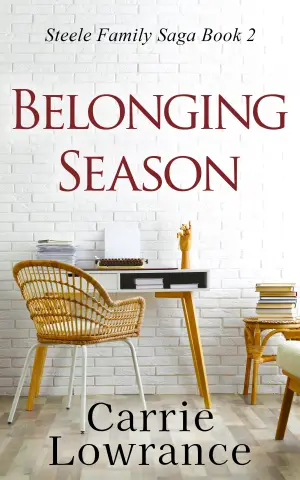Review of Becoming You by Suzy Welch
As an avid reader with a passion for self-help and personal development, I was immediately drawn to Becoming You by Suzy Welch. With its promise of a “highly practical method for discovering your true self and identifying the fulfilling career meant just for you,” I felt compelled to see if it could provide some clarity amidst my own career uncertainties.
What struck me most about Suzy Welch’s approach was her rejection of the so-called “happiness industrial complex.” She argues that happiness shouldn’t be the ultimate goal; rather, it’s an outcome of meaningful and productive living. I appreciated this refreshing perspective, as it opened my eyes to the often unrealistic expectations we place on ourselves regarding achievement and fulfillment.
One of the book’s highlights is its 13-part methodology, crafted from years of research and teaching. It challenges readers to do the deep, often uncomfortable inner work to truly define their values and align them with their career paths. I found the structure to be one of the book’s strongest points. It’s practical and easy to digest, with actionable exercises that really help you engage with the content. For instance, easily applicable techniques for self-discovery and exploratory exercises kept me turning the pages, eager to uncover my own “Area of Transcendence.”
Many readers, including Grace A., echo my sentiments, emphasizing how the book offers a “proven, tested, data-driven” approach. She mentioned it had the power to shift her perspective from uncertainty to clarity, which I wholeheartedly agree with. The stories shared throughout the book—woven into the fabric of Welch’s teachings—brought her theories to life. Sometimes personal and sometimes starkly real, these narratives provide relatable context that is often missing in self-help literature.
However, it’s essential to mention some drawbacks that others have pointed out. A few readers expressed disappointment regarding the hidden costs associated with some exercises, particularly the optional online assessments that require a paid subscription for full access. This feature shifted the focus from empowerment to commercialism for some, suggesting a degree of insincerity. Personally, while I appreciate the value of the additional resources, I understand why this would frustrate others looking for a wholly free ride to self-discovery.
Additionally, there were sentiments like those from Linda B., who believed the book leaned too heavily on common advice rather than groundbreaking insights. I wouldn’t go so far as to label it as merely common sense, but I do see its risks of retracing familiar territory for seasoned self-help readers. For someone new to this genre, however, the frameworks and ideas presented may feel revelatory.
Despite these criticisms, I found my reading experience to be predominantly positive. The humor and warmth found within the pages made it a joy to read. Suzy Welch’s candidness about her own struggles and uncertainties was both refreshing and encouraging, making her narrative accessible. These elements validate her intention of helping readers transition from fear to confidence.
In conclusion, Becoming You has proven itself to be a valuable guide for anyone wrestling with questions of purpose and career fulfillment. Though it has its drawbacks, particularly concerning additional costs for deeper insights, I believe the core concepts and practical steps present an excellent toolkit for self-discovery. I’d highly recommend it to those at any stage in their careers, especially to those feeling lost or looking for direction. It’s not just another self-help book; it’s a thoughtful invitation to embark on the journey of truly becoming oneself.
“Discover Your True Self with Becoming You” >>








